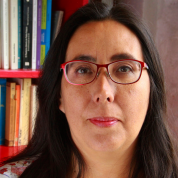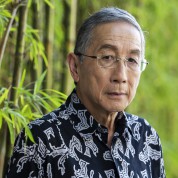PS3.2
Decolonizing Knowledge Production and Utilization
26
Jan
Knowledge production was an essential part of the colonial project, setting patterns that remain prominent in global health today. Inequalities in these current processes take many forms with today’s global health research, such as in authorship and publishing, the dominance of western methods and practitioners, the silencing of other peoples and traditions, and pathologizing or appropriating indigenous knowledge. This had, and has, many consequences for health and development in LMICs, which has diverged substantially from the processes observed in wealthy countries.
The historical trajectory of these inequalities is easily traced. The most obvious colonial legacy in this respect is “tropical medicine,” a field that emerged around 1900 in all major colonizing nations of Europe, and in the US in connection with its imperial ambitions. This academic specialty served business and national interests by studying health obstacles to military and commercial conquest. Tropical medicine was concerned with health threats to metropolitan interests, and later evolved a secondary purpose in serving indigenous or native people in ways that were transactional or extractive. This tradition of tropical medicine evolved as colonial medicine and later international health. The Liverpool School of Tropical Medicine and the London School of Tropical Medicine were the first two such schools and remain prominent today. This legacy is further exemplified by other European institutions, including the Netherlands’ KIT Royal Tropical Institute, which was founded in 1910 as the Colonial Institute, or the Institute of Tropical Medicine in Antwerp, founded in 1906 to address the threat of trypanosomiasis in King Leopold II’s Congo Free State, or the School of Tropical Medicine in Lisbon, founded along with the Colonial Hospital in 1902 to assist Portugal’s colonial ambitions. A parallel story unfolded in the United States, with the emergence of the American Society of Tropical Medicine in 1902 and specialized departments at Tulane, Harvard, and other US medical schools around the same time.
In this way, the institutional roots of global health were established in international agencies and Western academia, both of which were closely tied to national governments, their militaries, and the private sector businesses that led the economic extraction at the core of colonialism. The processes of economic extraction required new knowledge, which the academic specialty emerged to provide. This is why the private sector helped to establish the academic specialty of tropical medicine, e.g., the Elder Dempster shipping company was closely tied to the establishment of the Liverpool School, and the Firestone Rubber Company supported prominent research trips by Harvard faculty to assist in the exploitation of African resources. The Rockefeller Foundation, the result of capital accumulated by Standard Oil, was particularly influential, both by funding leading schools, including Johns Hopkins (1916), Harvard (1922), and the London School of Tropical Medicine (1924), and through its own activities in its International Health Division, established in 1914.
The objectives of this session include clarifying some of the major definitions and concepts that inform calls to decolonize knowledge production in global health. The session will feature speakers who will draw attention to specific problems and experiences that inform their interest in decolonizing global health.
SPEAKERS
Biosketch
Angele Flora Mendy
David McCoy
Eirliani Abdul Rahman
Irene Torres
Maria Mison
Tikki Pang







